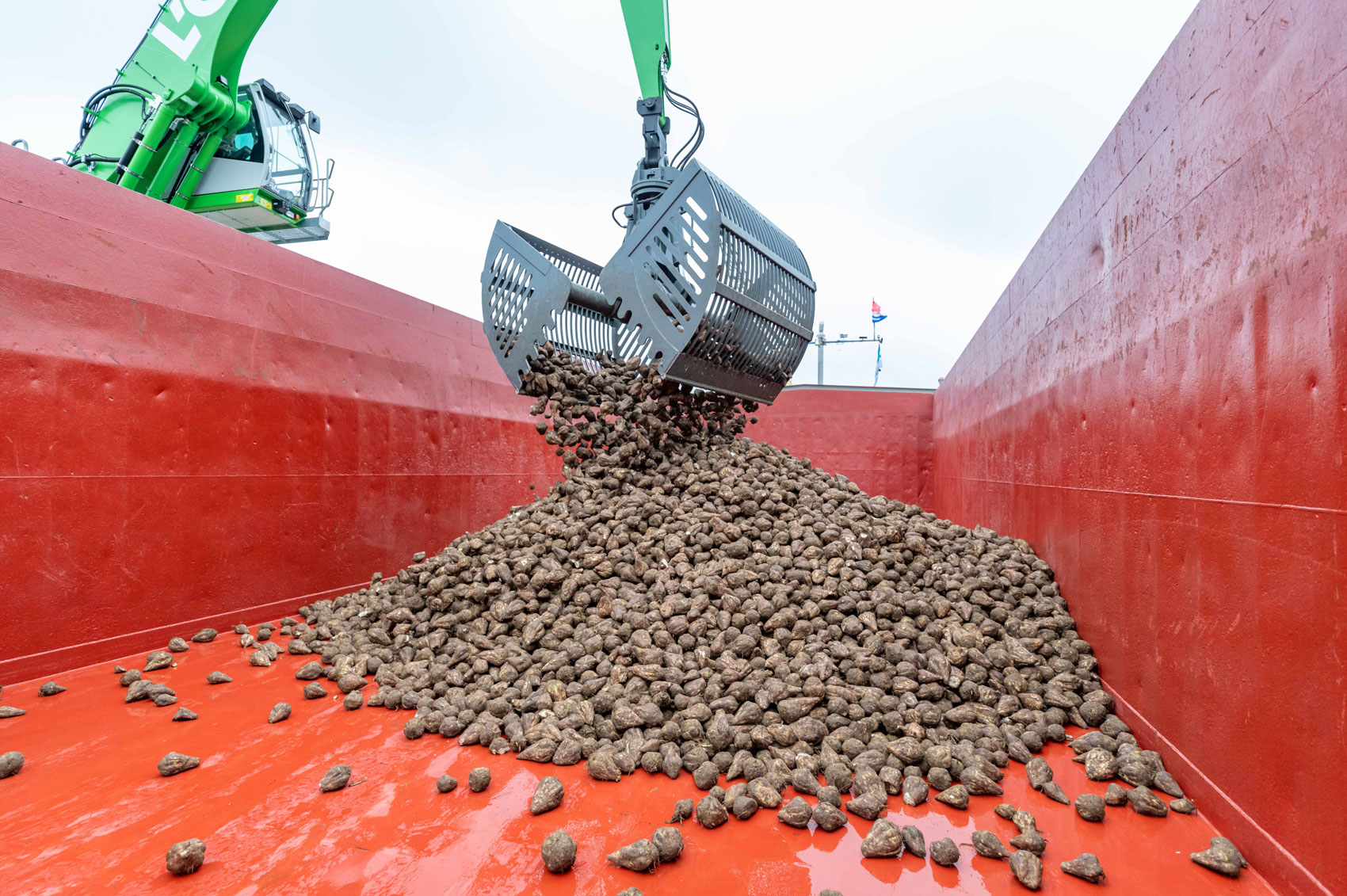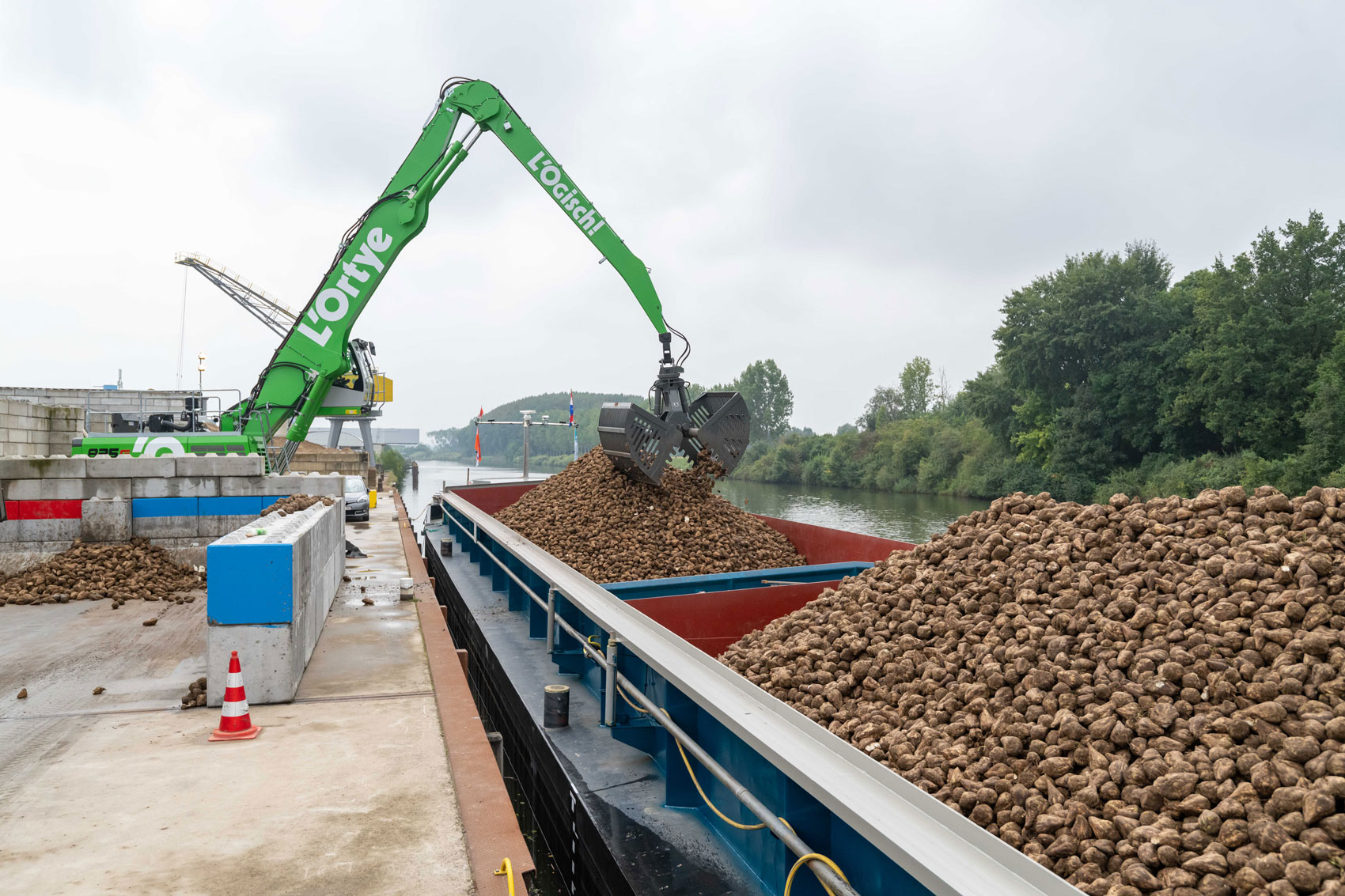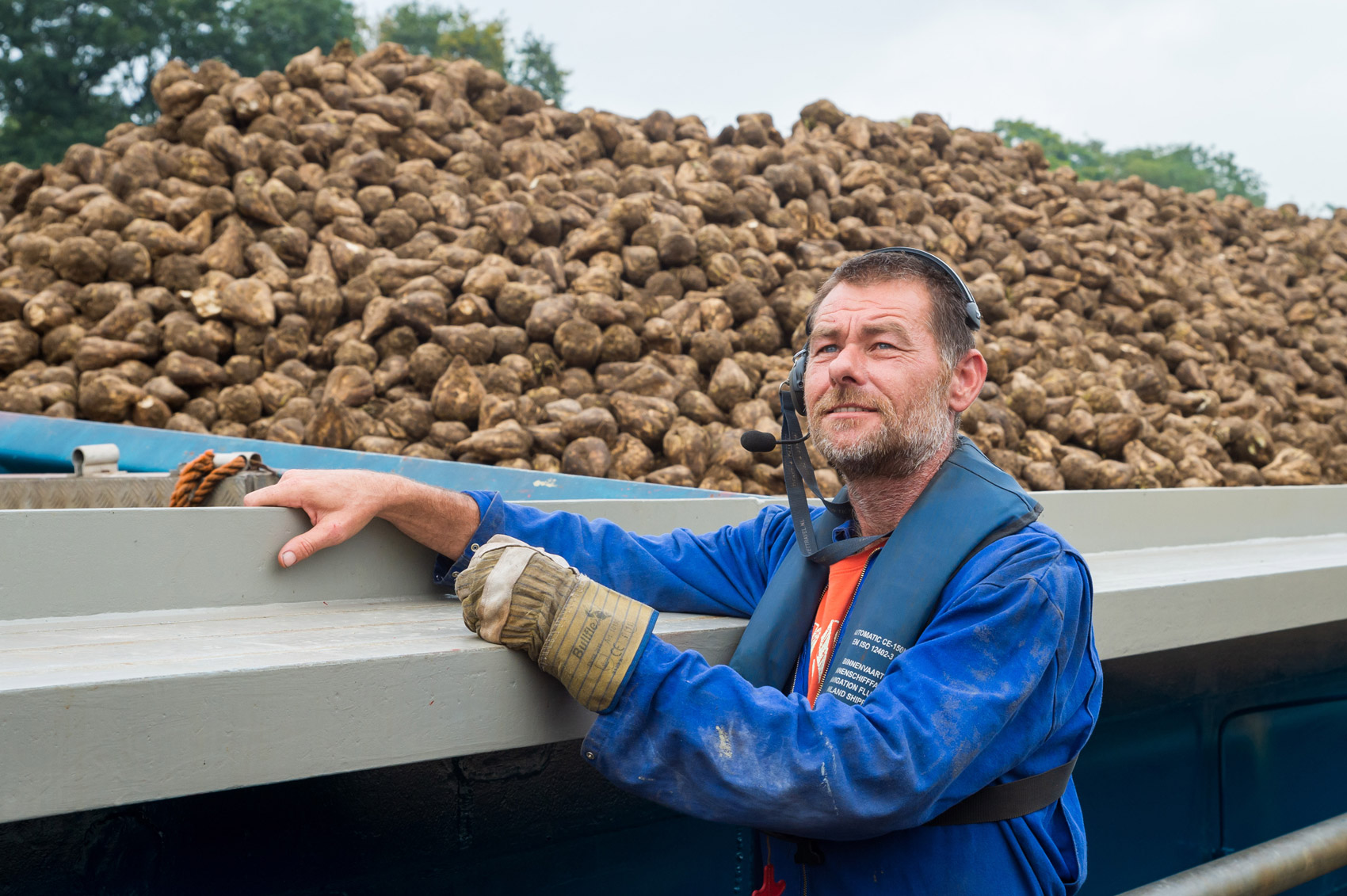NPRC transports 270 million kilos of sugar beet
Biggest shift of freight to waterborne transport in last 10 years
Rotterdam, 16 September 2021: On Wednesday 15 September, the European inland shipping cooperative NPRC, consisting of 140 inland shipping companies, started the large-scale operation to transport sugar beet from Maastricht (Limburg) to Oudenbosch (North Brabant), both in the Netherlands. Eight inland shipping barges commissioned by the Cosun Beet Company will transport no less than 270,000 tonnes of sugar beet in the coming months. This will create a veritable ‘sugar corridor’ and prevent more than 15,000 truck movements on the national road system.
Transferring cargo from road to water
This marks the largest modal shift (shifting of cargo from road to water) in the Netherlands of the previous ten years. Femke Brenninkmeijer, CEO of NPRC, is pleased with the result: “Multimodal shifts are always accompanied by challenges and necessary preparations. Since the evaluation of the pilot project last year, the participating parties have worked hard to remove all the bottlenecks of waterborne transport. This requires considerable effort and can only be achieved through close cooperation between all supply chain partners. It is unique to see how energetically Cosun Beet Company has taken this step to the water and has, in effect, redesigned its supply chain. NPRC is proud to be transporting these cargoes by water, which will also reduce the number of motorway journeys.”

Multimodal bulk flow
It is not every day that a bulk flow is transferred from road to water. Immediately after harvesting, the sugar beet are transported by truck to the L’Ortye terminal in Maastricht. Here they are carefully transhipped to inland shipping vessels, on which they sail to Oudenbosch where Wagemakers transfers the sugar beet into trucks to the final destination of the sugar factory in Dinteloord. Cosun Beet Company processes all parts of the sugar beet into food, energy, paper and biobased products so there is no waste.
Sustainable and measurable alternative
One of the benefits of transporting sugar beet by water is a 20% reduction in CO2 emissions. As a data-driven organisation, NPRC shares real-time data with customers and members through information portals. Among other things, NPRC collects emissions data and has noticed that shippers are increasingly requesting reports for their own CO2 accounts. These data enable shippers to measure the sustainability of their transport chains.
Cosun Beet believes strongly in sustainability and feels responsible for conserving nature and protecting the environment, people and society for future generations. The long-standing relationship with NRPC has been given an extra boost with the transport of these cargoes of sugar beet. “NPRC has been transporting sugar beet from the island of Texel to our factory in Groningen for many years. Both organisations are cooperatives, so we understand each other’s language. It’s a very pleasant way of working. With this step to waterborne transport, we are contributing to the Dutch government’s ambitious sustainability goals of having fewer trucks on the road network,” explains Arno Huijsmans, Cosun Beet Company’s Director of Agricultural Affairs.

Want to know more?
Please get in touch.

Bert van Strien
Manager Barging & Logistics
